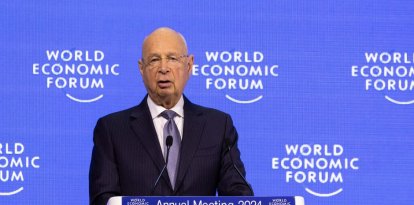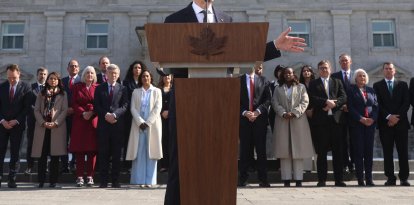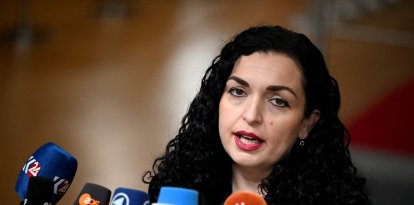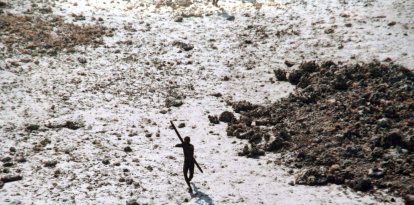US warns North Korea that its soldiers will return in 'body bags' if they enter Ukraine
"I would advise Chairman Kim to think twice before engaging in such a reckless and dangerous action," said Deputy Ambassador Robert Wood at the UN Security Council.
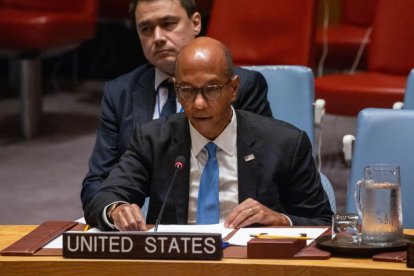
U.S. Alternate Representative for Special Political Affairs to the United Nations Robert Wood.
The defense chiefs of the United States and South Korea on Wednesday called on North Korea to withdraw its troops from Russia, where Washington claims some 10,000 military personnel have been deployed for possible use against Ukrainian forces.
"I call on you to withdraw your troops from Russia," demanded the U.S. Defense Secretary Lloyd Austin at the Pentagon, speaking alongside his South Korean counterpart, Kim Yong-Hyun, for whom this military deployment could "lead to an escalation of security threats on the Korean peninsula."
Austin said Washington "will continue to work with allies and partners to deter Russia from employing these troops in combat," which he accused of being equipped with Russian uniforms and weapons.
In a more explicit message addressed to North Korean leader Kim Jong Un, the U.S. delegation to the UN hours later warned North Korea that its soldiers will return in "body bags" if they enter Ukraine.
"I would advise Chairman Kim to think twice before engaging in such a reckless and dangerous action," Deputy Ambassador Robert Wood hurled at the Security Council.
Russia's envoy to the United Nations had minutes earlier at the same forum denied the presence of North Korean troops in its ranks in the war in Ukraine, calling the comments "mere assertions."
"These statements about North Korean soldiers on our front are mere assertions and are only meant to distract from the really important problems that threaten international peace and security," said Vasili Nebenzia, who accused Washington and London of "disinformation."
According to the United States and South Korea, some 10,000 North Korean military personnel are in Russia, although their mission is not clearly identified.
The Pentagon said Tuesday that it had detected a "small number" of such North Korean troops deployed in Russia's Kursk region, where Ukrainian forces have been conducting a ground offensive since August.
Weapons support
Early Thursday, North Korea launched a "long-range ballistic missile" toward the Sea of Japan, the South Korean military said, in its first weapons test since allegations about troops sent to Russia.
"Our military raised its alert level and shares information about the North Korean ballistic missiles with authorities in the United States and Japan," the South Korean Joint Chiefs of Staff said.
Experts have pointed out that, in exchange for the ground support, North Korea probably intends to acquire military technology, from surveillance satellites to submarines, in addition to possible security guarantees from Moscow.
There is a "strong likelihood" that Pyongyang will ask Russia for technology transfers to support its weapons programs, the South Korean minister stressed in Washington.
However, the official announced no change in Seoul's long-standing policy of banning arms sales to active conflict zones, including Ukraine, a stance it has maintained despite calls from Washington and Kiev to reconsider.
"Right now, nothing has been decided," Kim said when asked if South Korea plans to supply ammunition to Ukraine indirectly.
For its part, Pyongyang has denied supplying soldiers to Russia, although the two countries have strengthened their political and military alliance since the Ukraine conflict began.
Russian President Vladimir Putin has neither denied nor confirmed the deployment of North Korean troops.
This Wednesday, Russian diplomats announced that the North Korean foreign minister, Choe Son Hui, will go to Moscow for "strategic" talks with her Russian counterpart.
In the midst of this controversy over military ties between Moscow and Pyongyang, the head of Chinese diplomacy, Wang Yi, discussed the war in Ukraine with Russian Deputy Foreign Minister Andrei Rudenko in Beijing.
RECOMMENDATION

